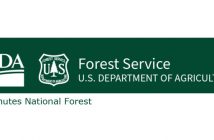Your hard earned money is extremely important to you, and imagining a life without a good and stable income doesn’t bear thinking about. You need to pay special attention to how you store your money and just how safe it is when it’s not in your hands. Gone are the days that keeping money under your bed was thought to be a good idea. Your money isn’t often physically in your hands, so you have to ensure that it’s kept safely when it’s out of your sight, which is the majority of the time. You need to keep your money protected wherever it is, and you should have your wits about you, as there are plenty of thieves and scammers who are more than willing and ready to steal from you.
Ensure Taxes Are Paid & Filed Correctly
Whether you’re the owner of an established business, or you’re self-employed, it’s important that you ensure you pay your taxes and file them correctly. If you’re filing your own taxes, and experience some difficulty, then it’s always worth contacting a private accountant to help explain matters to you in a clear and professional manner. If you have unresolved or federal tax debts, unfortunately, you are exposed to the possibility of a bank levy. Having a tax levy on bank account allows the IRS to take your possessions in order to settle your debts. Once a levy notification has been issued, then there is very little time left to act and once seized, it’s very difficult to try and get the funds back from the government. You can prevent this and protect your cash by ensuring your taxes are paid correctly.
Common Sense
First and foremost, if something sounds too good to be true, then it most likely is. If you’re on the web and you stumble across a deal promising to give you something of value for only a few dollars, then it’s probably a scam. In this case, you should avoid getting involved or even clicking on the offer in question. Use your common sense when it comes to protecting your cash and never give your bank details to sites that don’t seem genuine. If you’re unsure, then don’t take the risk. Contact your bank immediately if you suspect you’ve interacted with potentially dangerous websites and given your bank details over.
Strong Passwords
Using the same password for both personal and financial accounts can leave you at risk to thieves and scammers. Vary your passwords across your different accounts, and keep them strong. Take password hints and learn how to make them as strong as possible. Use numbers and capital letters throughout them and don’t use the names of your children, your pets, or your date of birth. Refrain from using passwords that can be figured out through gaining access to your personal data like your name, the street you live on, and the names of your relatives. Remember never to document your passwords by keeping them on your mobile phone. Instead, keep cryptic clues that only you would understand, and only keep the written clues on a piece of paper that’s kept safely in your home.


